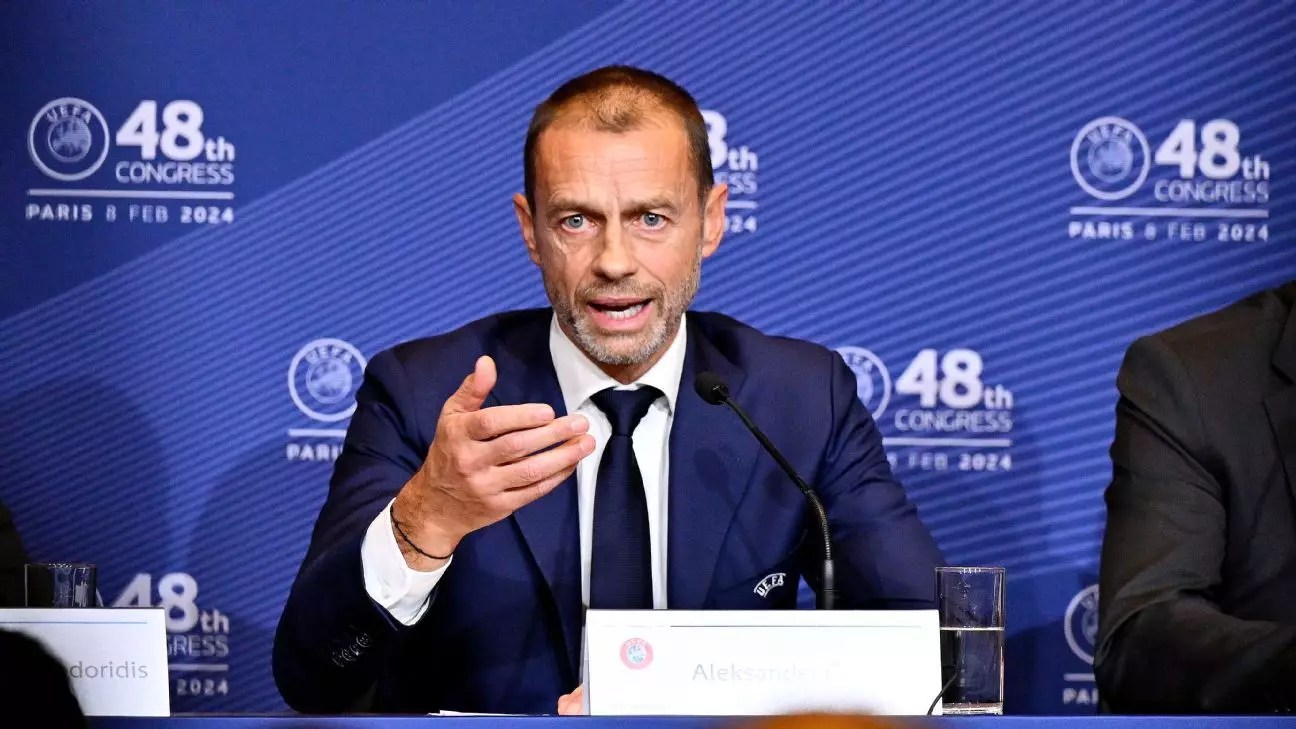Aleksander Ceferin, the current president of UEFA, has shocked the football world by declaring that he will not seek reelection in 2027. This unexpected decision came just one hour after he successfully pushed through controversial changes to UEFA’s statutes that would have allowed him to extend his term limits. Ceferin cited his weariness over the COVID-19 pandemic, ongoing conflicts, and the failed Super League project as reasons for stepping down.
The voting on the amendments took place during UEFA’s Congress at Maison de la Mutualité in Paris. While the changes were passed almost unanimously, with only the English Football Association chief voting against and Ukraine’s FA abstaining, they have sparked significant debate within the football community. The amendments extended the term limits for the president and members of the executive committee, overturning previous rules that limited them to three terms or 12 years in office.
Ceferin’s Justification
In a press conference following the vote, Ceferin addressed the criticism surrounding the amendments, acknowledging that UEFA had become “divided” and “fragmented beyond repair.” Despite defending the changes, he surprisingly announced that he would not seek reelection in 2027. Ceferin explained that the need for new leadership and his desire to spend more time with his family were the primary reasons behind his decision. He expressed his frustration with the challenges posed by COVID-19, conflicts, and the controversial Super League project.
The amendments have not been without their detractors, with UEFA’s former chief of football, Zvonimir Boban, resigning in protest earlier in the year. Ceferin has been vocal in his response to Boban’s criticism, accusing him of being “pathetic” and “narcissistic” for his actions. He reiterated that the amendments were necessary to rectify the illegal passing of statutes by the previous administration without the consent of UEFA’s Congress.
Looking Ahead
As Ceferin prepares to step down from his role as UEFA president in 2027, the football community is left to ponder the legacy he will leave behind. His tenure has been marked by both triumphs and controversies, and only time will tell how history will judge his leadership. With the landscape of European football constantly evolving, the next president of UEFA will face a myriad of challenges as they navigate the complexities of the sport.
Aleksander Ceferin’s decision to not seek reelection in 2027 marks the end of an era for UEFA. While his tenure has been met with both praise and criticism, his leadership has undeniably left a lasting impact on European football. As the football world braces for a new chapter, the departure of Ceferin signals a period of transition and change for one of the most influential governing bodies in the sport.


Leave a Reply